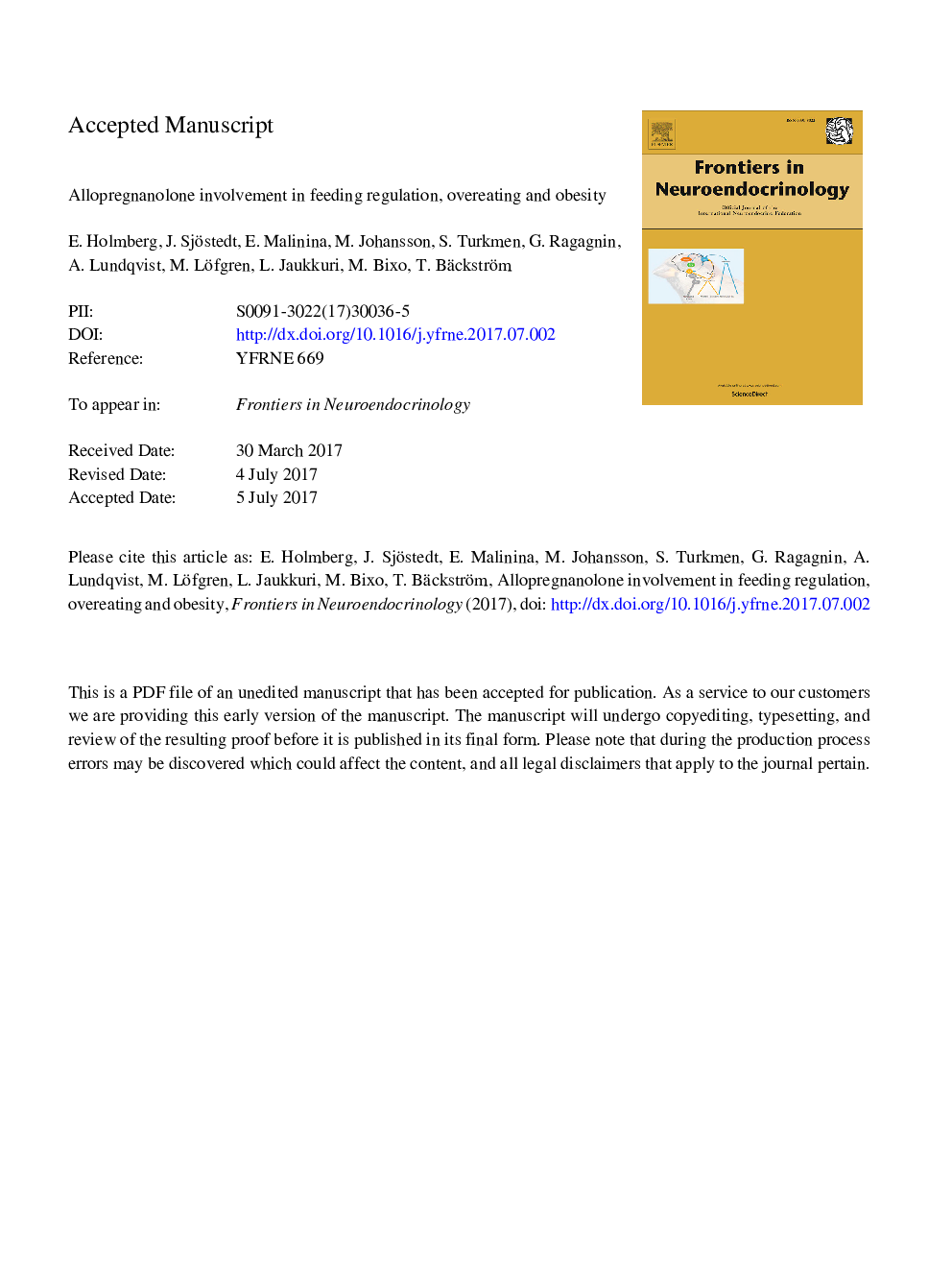| Article ID | Journal | Published Year | Pages | File Type |
|---|---|---|---|---|
| 8630595 | Frontiers in Neuroendocrinology | 2018 | 28 Pages |
Abstract
Obesity is strongly associated with ill health, primarily caused by consumption of excessive calories, and promoted (inter alia) by gamma-amino-butyric-acid (GABA) stimulating food intake by activating GABAA receptors (primarily with α3 and α2 subunits) in the hypothalamic arcuate nucleus and paraventricular nucleus. Allopregnanolone is a potent positive GABAA receptor modulating steroid (GAMS). As reviewed here, elevated allopregnanolone levels are associated with increases in food intake, preferences for energy-rich food, and obesity in humans and other mammals. In women with polycystic ovarian disease, high serum allopregnanolone concentrations are linked to uncontrolled eating, and perturbed sensitivity to allopregnanolone. Increases in weight during pregnancy also correlate with increases in allopregnanolone levels. Moreover, Prader-Willis syndrome is associated with massive overeating, absence of a GABAA receptor (with compensatory >12-, >5- and >1.5-fold increases in α4, γ2, and α1, α3 subunits), and increases in the α4, βx, δ receptor subtype, which is highly sensitive to allopregnanolone. GABA and positive GABA-A receptor modulating steroids like allopregnanolone stimulates food intake and weight gain.
Keywords
VTAobesity proneTHDOCPCOSPWSVMHNACPOMCAgRPNPYTSPOHFDCl−GAMsγ-aminobutyric acidallopregnanolonestandard error of meanSatietyCNSHigh fat dietWorld Health OrganisationHourPrader-Willi syndromepolycystic ovarian syndromecentral nervous systembody mass indexBMIOvereatingArcPVNSEMObesityventral tegmental areaNucleus accumbensarcuate nucleusparaventricular nucleuslateral hypothalamusVentromedial hypothalamusAgouti-related proteinproopiomelanocortinWHOkcalGABAHungerGABAA-receptorGABAA receptorNeuropeptide YChloride ion
Related Topics
Life Sciences
Biochemistry, Genetics and Molecular Biology
Endocrinology
Authors
E. Holmberg, J. Sjöstedt, E. Malinina, M. Johansson, S. Turkmen, G. Ragagnin, A. Lundqvist, M. Löfgren, L. Jaukkuri, M. Bixo, T. Bäckström,
